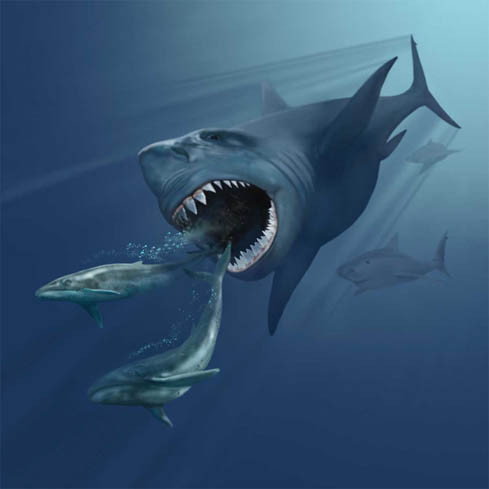Megalodon driven to extinction by competition with great white shark and killer whale ancestors
The biggest shark ever found in the ocean was outcompeted for food

The largest shark in the history of Earth was driven to extinction by being outcompeted by fellow predators. Researchers found the megalodon's prey began to decline in the same period that the giant shark did, while new predators including the ancestors of great whites and killer whales, started to emerge.
Research, published in the Journal of Biogeography, suggests a lack of prey and increased competition meant substantially less food was available for megalodons. This would mean climate change (at least not directly) was not to blame for Carcharocles megalodon's extinction, as had previously been believed.

Megalodons, which could reach up to 60ft in length, lived from 28 million years ago until their extinction 2.6 million years ago. During this period, the climate fluctuated widely, with periods of warming and cooling. Scientists from the University of Zurich analysed 200 megalodon fossils, including its teeth, to reconstruct their global population and how it changed according to different climates.
Up to 16 million years ago, they were mainly found in the warm Northern Hemisphere – around North America, Europe and the Indian Ocean. However, they then slowly moved toward Asia, Australia and South America. Their population did not significantly increase when the climate was warmer, nor did they decrease in colder temperatures.
Instead, they found their decline corresponded with a fall in the population of their prey. Furthermore, new predators, including ancestors of great white sharks and killer whales, emerged. This meant less food was available for a growing number of predators, and ultimately led to the megalodon's extinction.
Because no modern-day predator at the top of the food chain has gone extinct, understanding how and when the megalodon did will help our understanding of the ecological consequences involved. Researchers now plan to investigate other environmental reasons for the extinction of the species.
© Copyright IBTimes 2025. All rights reserved.






















